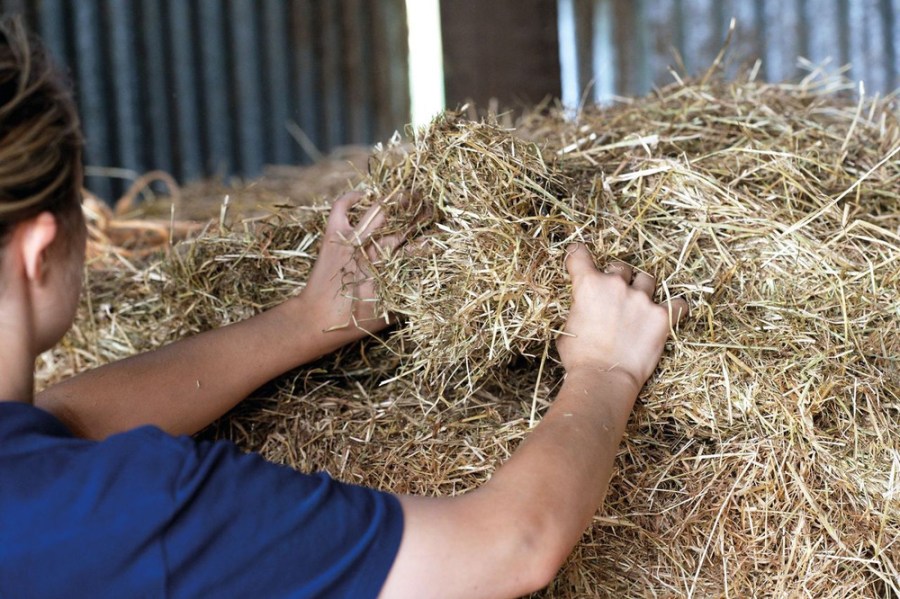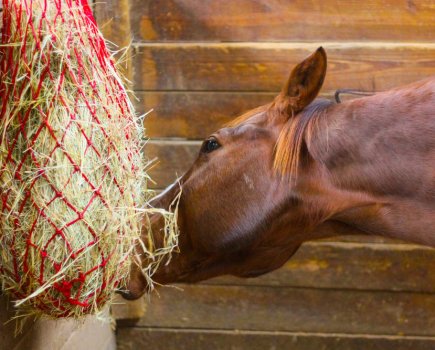Most horses maintain their weight well over the spring and summer months when grazing is plentiful and of good quality.
Come the autumn and into winter, though, many appear to lose weight and we typically class them as poor doers.
For many of these horses, their weight loss is likely due to the lack of available forage and a reduction in the quality of forage they receive when we are relying much more on preserved types of forage, such as hay and haylage.
If you have a horse who loses weight in winter, the first thing to address is his forage intake. It is more than likely that either he’s not receiving enough, or what is being fed could be of higher quality to provide a better calorie intake.
Forage is the most important part of your horse’s diet and ideally it should be fed on an ad-lib basis, especially if he tends to lose weight quickly.
Forage replacers
Commonly when older horses lose weight in winter, it’s because their ability to eat forage sources such as hay and haylage is hindered by dentition.
As horses age, so do their teeth and this often means that they struggle with preserved forages.
If you are already feeding forage ad-lib and your horse is still losing weight, it’s probably time to consider introducing a forage replacer ration.
These consist of easier to eat fibre sources that can replace part or all of your horse’s forage ration, particularly if he is struggling with longer stem forage and is quidding (dropping) hay/haylage as he eats.
You can offer things like high-fibre cubes, short chop chaffs or dried grass chops, grass nuts and soaked beet pulp, to name but a few.
If you are considering using a forage replacer ration, it’s always advisable to speak to a qualified nutritionist first to ensure that your horse is being provided with an adequate amount, and with appropriate feed stuffs based on his specific needs.









